Last Friday, we were delighted to welcome members of the Culham St Gabriel’s wider community to our Partnership Celebration Event. Held in a spirit of collaboration, the event brought together grantees, partners, trustees, and staff to celebrate our shared commitment to religion and worldviews education, and to shape its future together.
By gathering together, we hoped to strengthen existing partnerships, to learn from one another, and to amplify our collective voice in the field of religion and worldviews education. Guests were welcomed with refreshments and an information pack containing details of our current programmes, strategic vision, grant and scholarship opportunities, and take-home materials designed to inspire future engagement.
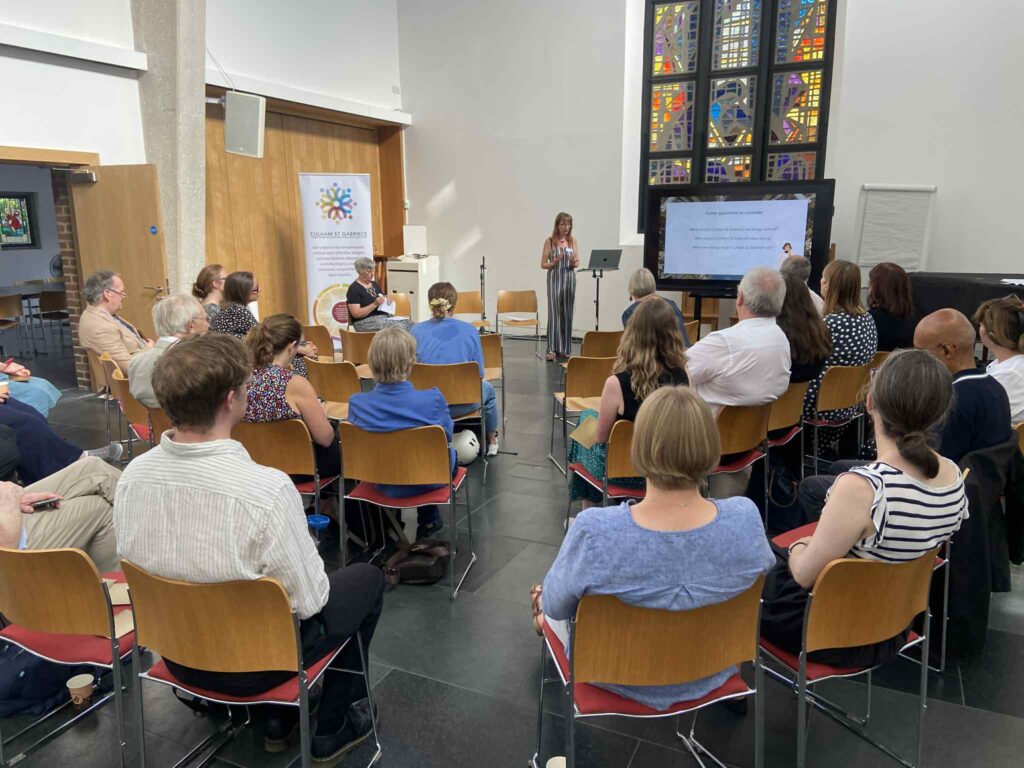
Following a welcome from our Chair of Trustees, Linda Whitworth, the group viewed a short presentation that showcased the breadth of work supported by the Trust, from individual scholars and grant recipients to innovative projects and national religion and worldviews campaigning initiatives.
Participants were then invited to reflect creatively on their relationship with the Trust, using Dixit cards as prompts for discussion in small groups.
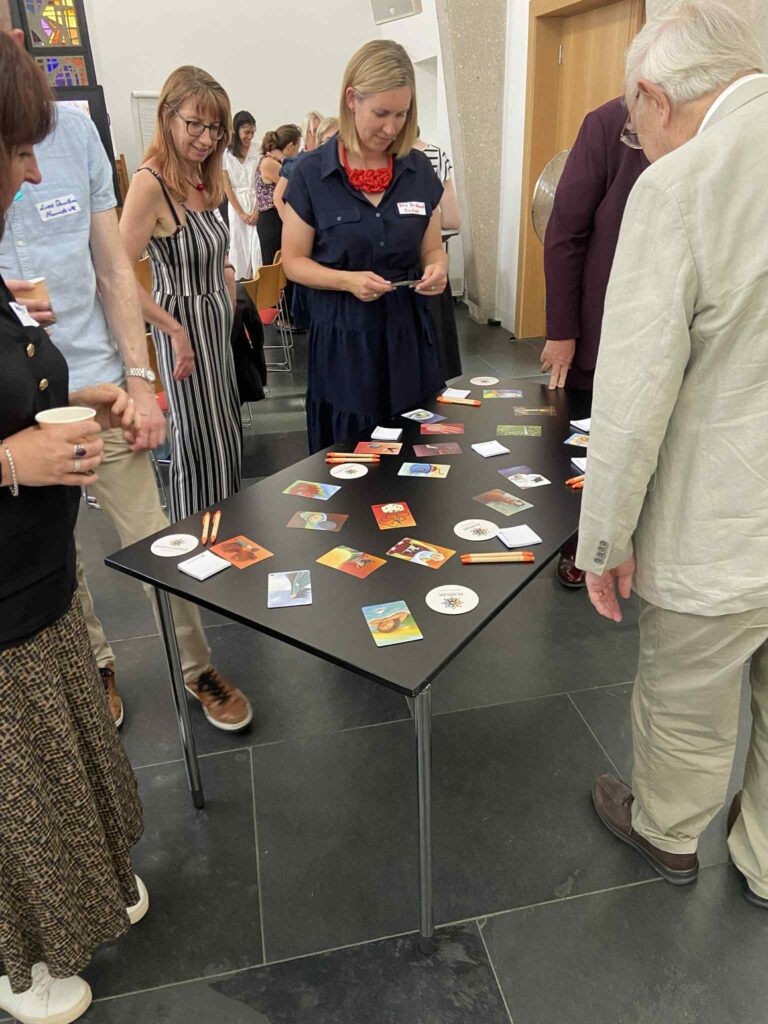
We also reflected on some key questions:
- What should Culham St Gabriel’s be doing more of?
- What should we stop doing?
- What new things might we explore together?
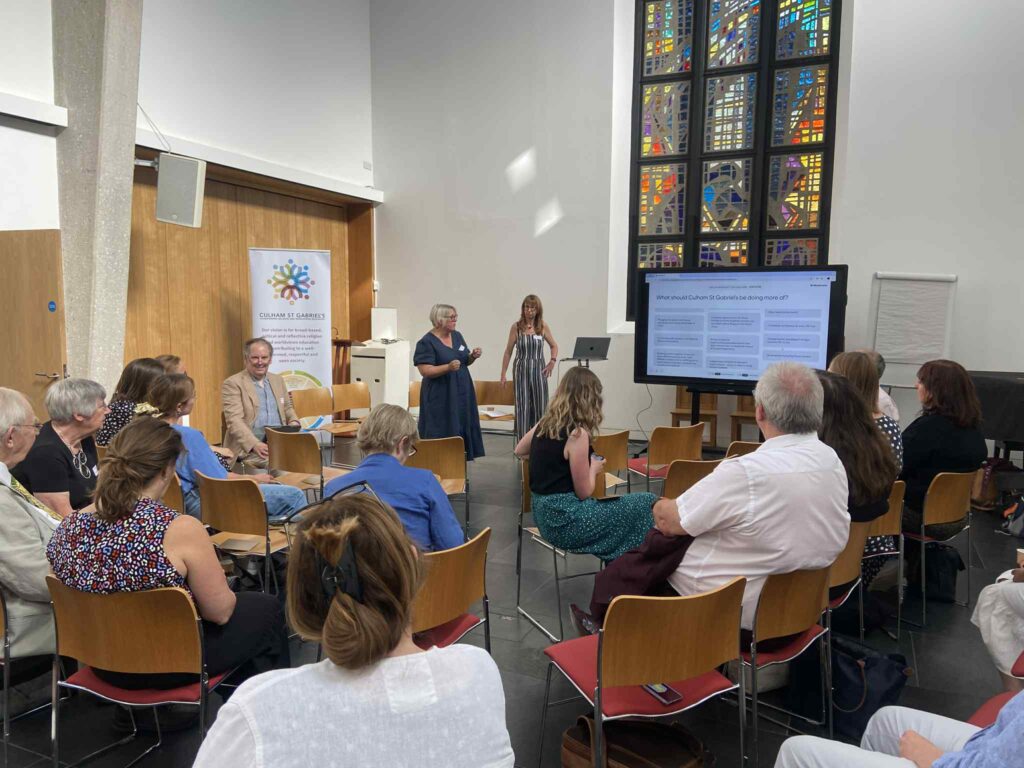
Later, we gathered around topic tables, ranging from curriculum development and teacher education to interfaith engagement and accessibility. Facilitated by staff and trustees, these discussions explored shared challenges and opportunities for future collaboration, with outcomes recorded to inform our ongoing work.
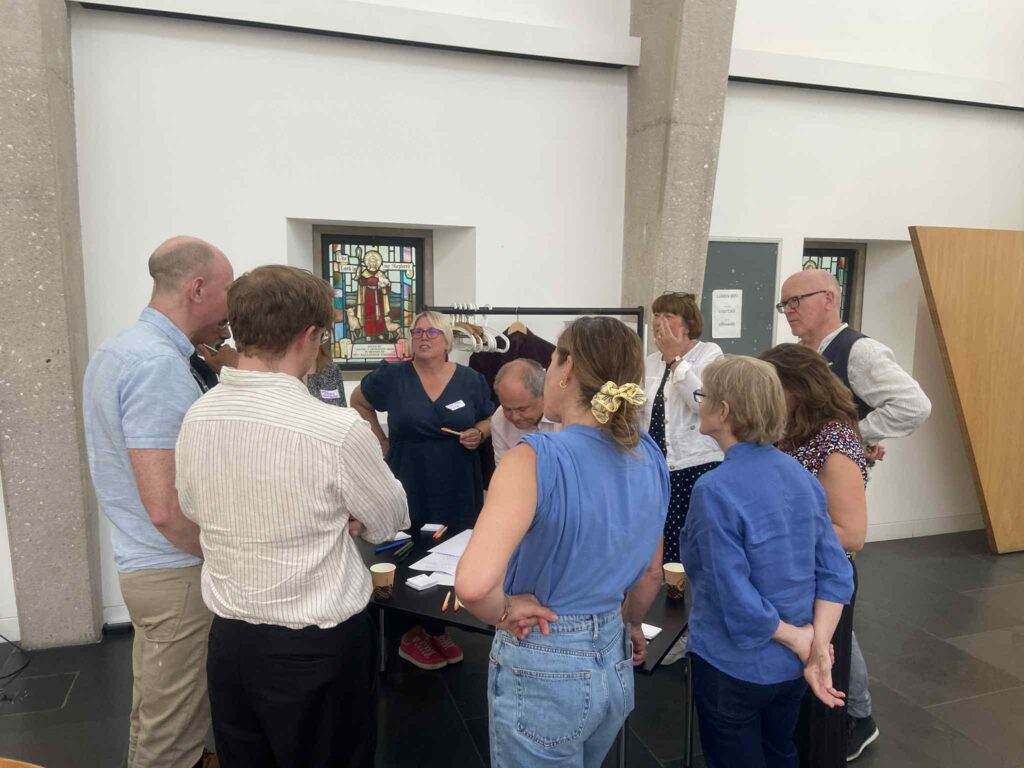
The event concluded with a forward-looking panel discussion. Contributors reflected on their hopes for religion and worldviews education in the future and the evolving role of Culham St Gabriel’s within that landscape.
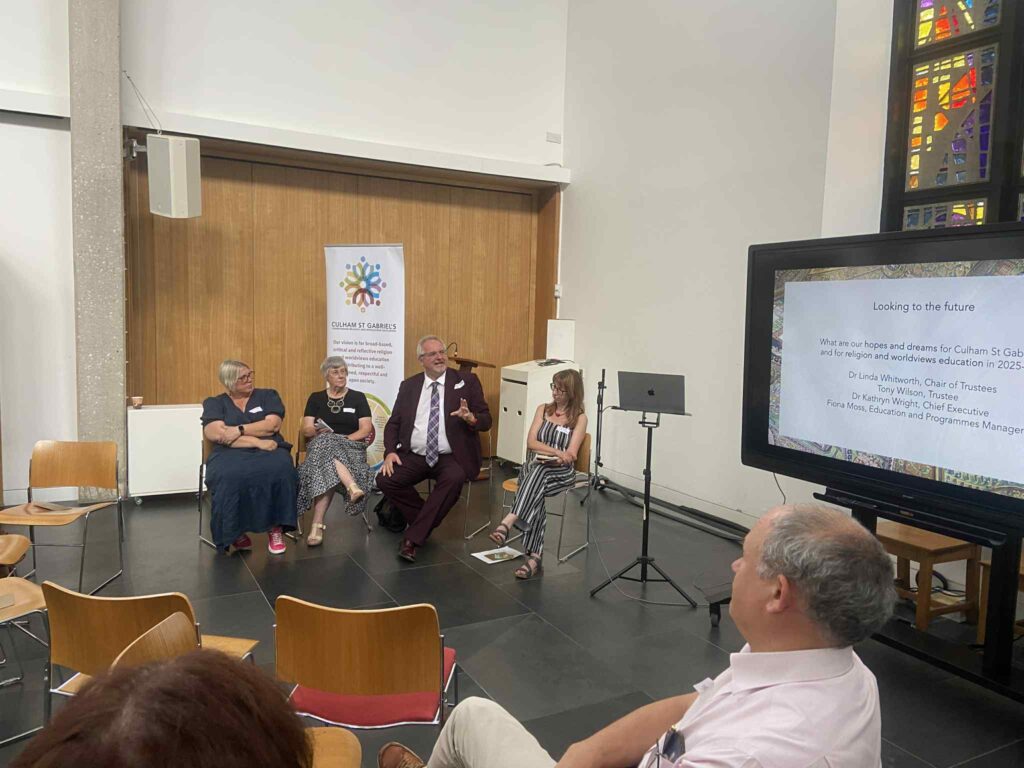
The afternoon was not only a moment of reflection, but also a fantastic catalyst for new connections and renewed purpose. We’re very grateful to all who attended and contributed so thoughtfully to the conversation, and hope to do something similar in the future!

